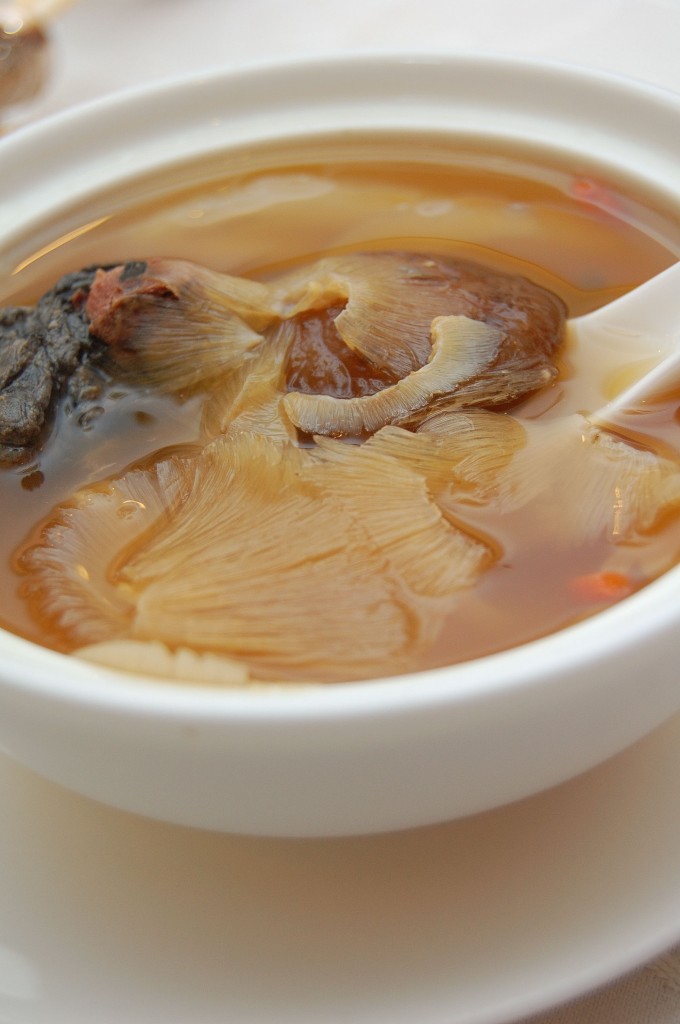An estimated 80-100 million sharks are killed each year, many which are used for one purpose: shark fin soup. The practice of catching sharks, cutting off their fins and tossing the rest back into the sea has gain international attention in recent years, however the attention and calls to action has apparently done little to change the demand of shark fin soup in China.
The Humane Society International and the Nature University (an environmental organization in Beijing) recently completed a survey of 207 upscale restaurants in Beijing, Shanghai and Shenzhen, China. More than 75%, or 156 of the 207 restaurants queried, said shark fin soup is currently on their menu. While shark fin soup is popular in other countries as well, China is the single largest consumer of shark fin soup in the world. To the Chinese, shark fin soup represents wealth, prestige, and honor. It was a gourmet food coveted by emperors in China’s Ming Dynasty because it was rare, delicious, and required elaborate preparation. In addition to the prestige of eating shark fin soup, there is also a widespread belief that shark fin soup is of great nutritional value.

A bowl of shark fin soup. Credit: Creative Commons.
“Shark fin soup, considered a delicacy and a symbol of social status, is served at mostly exclusive restaurants throughout China,” reported China’s Xinhua News Agency. “Moreover, a widespread belief that shark fin is of great nutritional value has only helped with its fame.”
It appears, however, that the ban on shark fin soup has little to do with China’s decision to protect sharks or the environment; it’s a part of an overall “crackdown on “extravagance.
Related story: Feds deny protection to sharks in California
China’s State Council announced plans in 2012 to ban shark fin soup at all official government functions within three years, and the ban was finally announced this month as part of this “crackdown on extravagance.” In addition to banning shark fin soup, items now restricted from official receptions include “cigarettes, expensive alcohol, and wild animal products.” It also bans the popular bird’s nest soup at official functions.
In the recent survey, 52 of the restaurants canvassed were also asked whether they had heard of restrictions on serving the soup. Only 16 knew of the ban, while just 21 restaurants were aware that populations of some shark species are threatened.
Will the ban be effective at reducing the consumption of shark fin soup in China? Only time will tell, however based on the long-standing cultural tradition of eating the soup and much misinformation regarding its nutritional value and supposed benefits, much work remains to be done to both educate and enforce restrictions on both fishing for and consuming sharks.

NOAA agent counting confiscated shark fins. Source: NOAA
Realated stories:
Stronger shark finning ban endorsed by European Parliament
Western Australia considers taking great white sharks off protected species list
